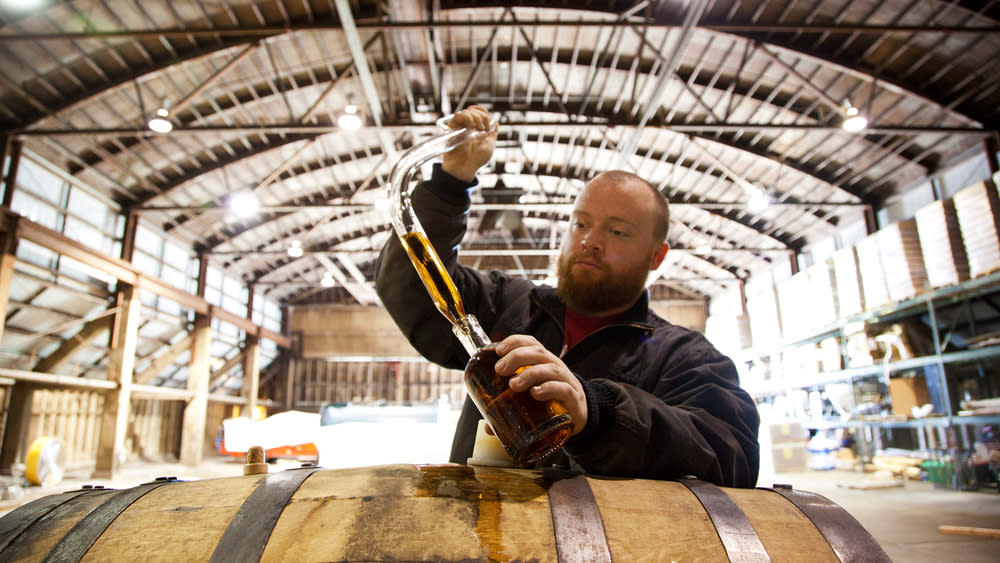American Single-Malt Whiskey Is About to Get an Official Designation From the U.S. Government

Scotch die-hards may sneer at American single-malt whiskey. But the U.S. government doesn’t seem to have any qualms with the spirit.
The federal Tax and Trade Bureau will soon unveil its official definition of American single malt, giving some added legitimacy to the whiskey, The New York Times reported on Monday. It will be the first new spirit category in several years and firmly plants the American liquor in the mainstream.
More from Robb Report
Taste Test: Coors Is Making Bourbon, and It's Better Than You Think
This New Smoky Whisky Tastes Like Backyard Barbecues, and That's the Point
These Two New Macallan Whiskies Have Been Aged for Over 30 Years. Now They Can Be Yours.
“It’s a necessary step given the critical mass that we have here, with over 200 distilleries making single-malt whiskey in this country,” Steve Hawley, the cofounder of the American Single Malt Whiskey Commission, told the Times. “That’s more than all of Scotland.”
The proposed definition will impose some rules on American single malts, but it’s still much looser than the requirements one finds in Scotland. While the U.S. spirit will need to be made at one distillery using 100 percent malted barley—the same as in Scotland—it won’t need to be distilled on a pot still or aged for at least three years. The relative laxness of the definition will ideally allow American single malts to remain, well, singular.
Thanks to the country’s vastness and variety of climates, agriculture, and traditions, American single malts from different distilleries are rather unique. In New York, for example, Tenmile Distillery hews closely to the way things are done in Scotland, producing a liquid as similar to single-malt Scotch as possible. But at Seattle’s Westland Distillery, the Pacific Northwest takes center stage, with the use of local barley and barrels made with wood from local oaks.
“We can do this in a way that’s not a clone of Scotch,” said Matt Hofmann, Westland’s master distiller. “For me, growing up here in the Pacific Northwest, it’s the ability to make a whiskey that is reflective of this place that I love.”
With the official definition on the horizon, some distillers are worried that the rules will cut off avenues for experimentation within the field. But Hawley tried to quash those fears, emphasizing the broadness of the proposed language.
“Because of the nature of production, American single malt won’t ever have a fingerprint from a flavor standpoint,” he said.
But it will certainly leave its mark on the spirits world as an official category in the U.S. market.
Best of Robb Report
Why a Heritage Turkey Is the Best Thanksgiving Bird—and How to Get One
The 10 Best Wines to Pair With Steak, From Cabernet to Malbec
Sign up for Robb Report's Newsletter. For the latest news, follow us on Facebook, Twitter, and Instagram.

